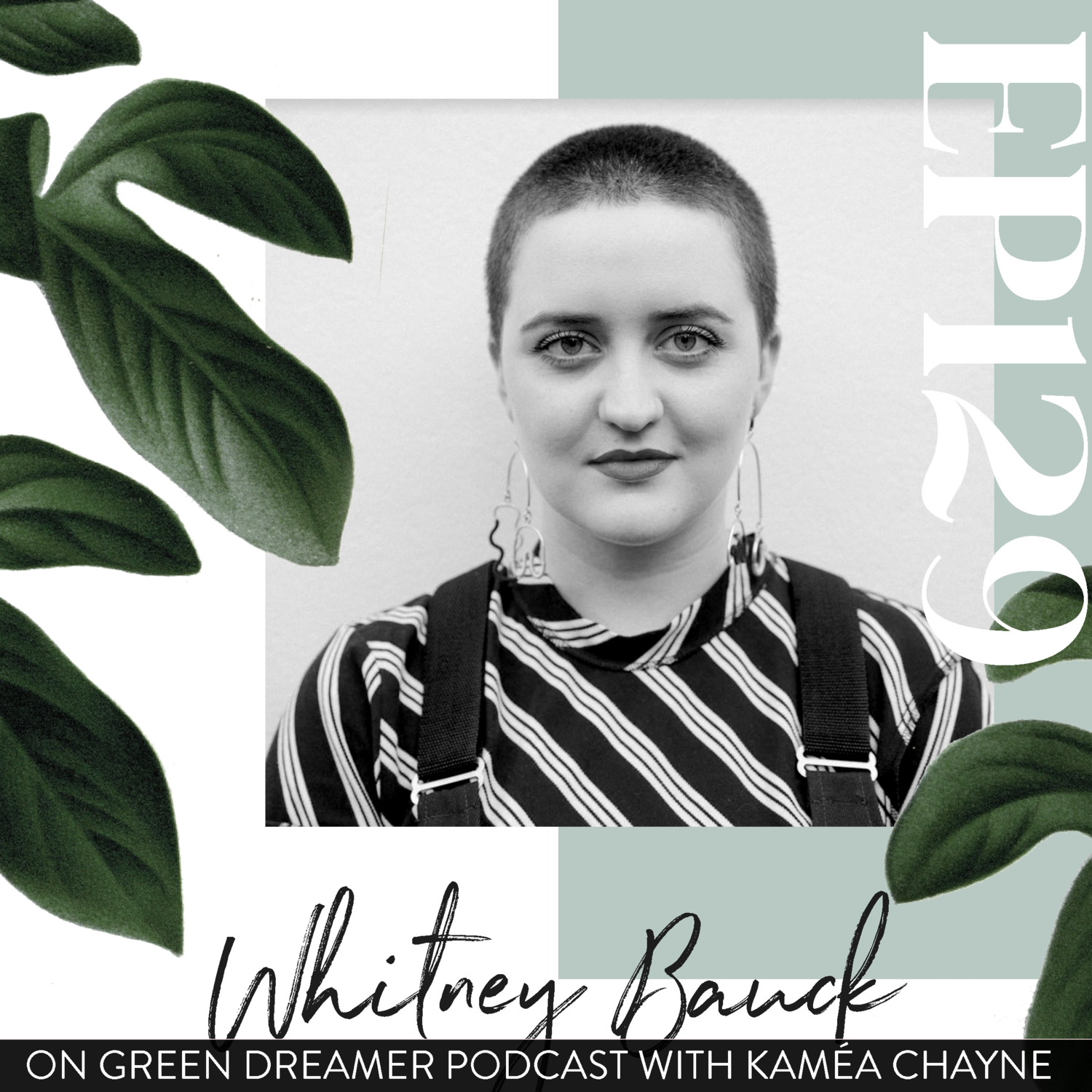Collaboration over competition to more quickly achieve our shared goals
Whitney Bauck (@unwrinkling) is an Associate Editor at Fashionista. She got her start writing about the intersection of fashion, faith, and ethics, and now frequently explores the topics of sustainability, worker rights, and diverse representation within the fashion industry.
On this week's podcast episode, she shares why she thinks regenerative agriculture may be the next big thing in sustainable fashion, her thoughts on what drives fashion trends, how we can influence the industry to be more ethical and sustainable in practice, and more.
To start, get a glimpse below into the conversation between Whitney and Green Dreamer Podcast's host, Kaméa Chayne.
If you feel inspired by this episode, please consider donating a gift of support of any amount today!
This is a conversation on Green Dreamer Podcast with Kaméa Chayne, a show exploring environmental regeneration and intersectional sustainability from ideas to life. Subscribe to Green Dreamer on iTunes, Spotify, Stitcher, or any podcast app and let’s learn what it takes to thrive in every sense of the word!
On fashion ethics and sustainability:
"Once I started using my lens to think about the fashion industry, it became clear that regardless of what your background is, regardless of what your religious preconceptions are or are not, we can all agree on some really basic things—no one should die to make a t-shirt, and we shouldn't be pouring toxins into our planet.
It was through studying what all the different things are that fashion touches that led me [to focus on ethics and sustainability in fashion]."
On the potential of regenerative agriculture:
"The really exciting thing about regenerative agriculture is that it's basically a way of farming that can actually sequester carbon.
This is in the article I just wrote, but people are basically saying that we can sequester all of the world's carbon if we can convert all industrial farming over to regenerative practices. What that means is, you can reverse climate change with farming.
The reason that ties into fashion is that in theory, that's where we're getting a lot of our fibers. So whether it's how we're growing our cotton, how we're grazing the animals that we're then shearing for wool or the cows that we're raising and then using for leather...
All of those ways of raising plants and animals can be done regeneratively in ways that are so much better for the soil, and then ultimately better for the people, plants, and animals, which is really exciting."
On creating positive change:
"Voting with your dollar and being aware of the way that consumer movements really do push companies, especially in a very capitalistic society, is really important.
I also don't think that if you're limiting your entire activism to the way you're shopping or what you're wearing is enough, quite frankly. I think we need to be writing it into policy; we need to be voting for the kinds of people who are thinking about the environment.
There are a lot of other ways we need to be addressing these problems, and it can't end with our wardrobe. But I think it can start with our wardrobe."
Whitney's closing words of wisdom:
"I really believe that part of our problem of overconsumption and not taking care of the planet comes from not taking care of ourselves spiritually.
I think that if you're not in touch with your own needs and emotions on a really deep level, it's hard to take care of anyone else. That includes the people that are making your clothing and that includes the planet. So everyone please take time to cultivate a spiritual life that's meaningful where you're in touch with yourself."

